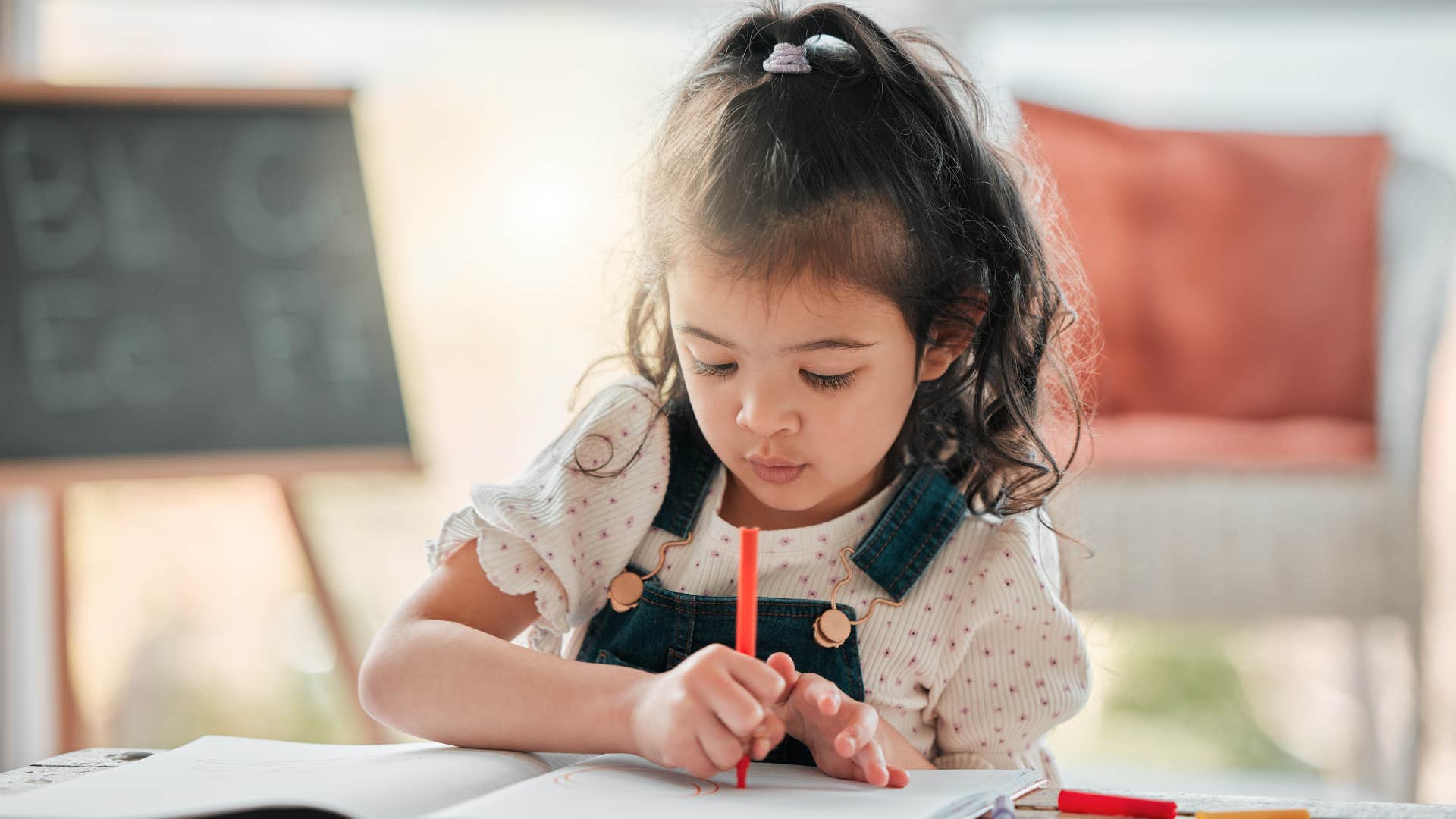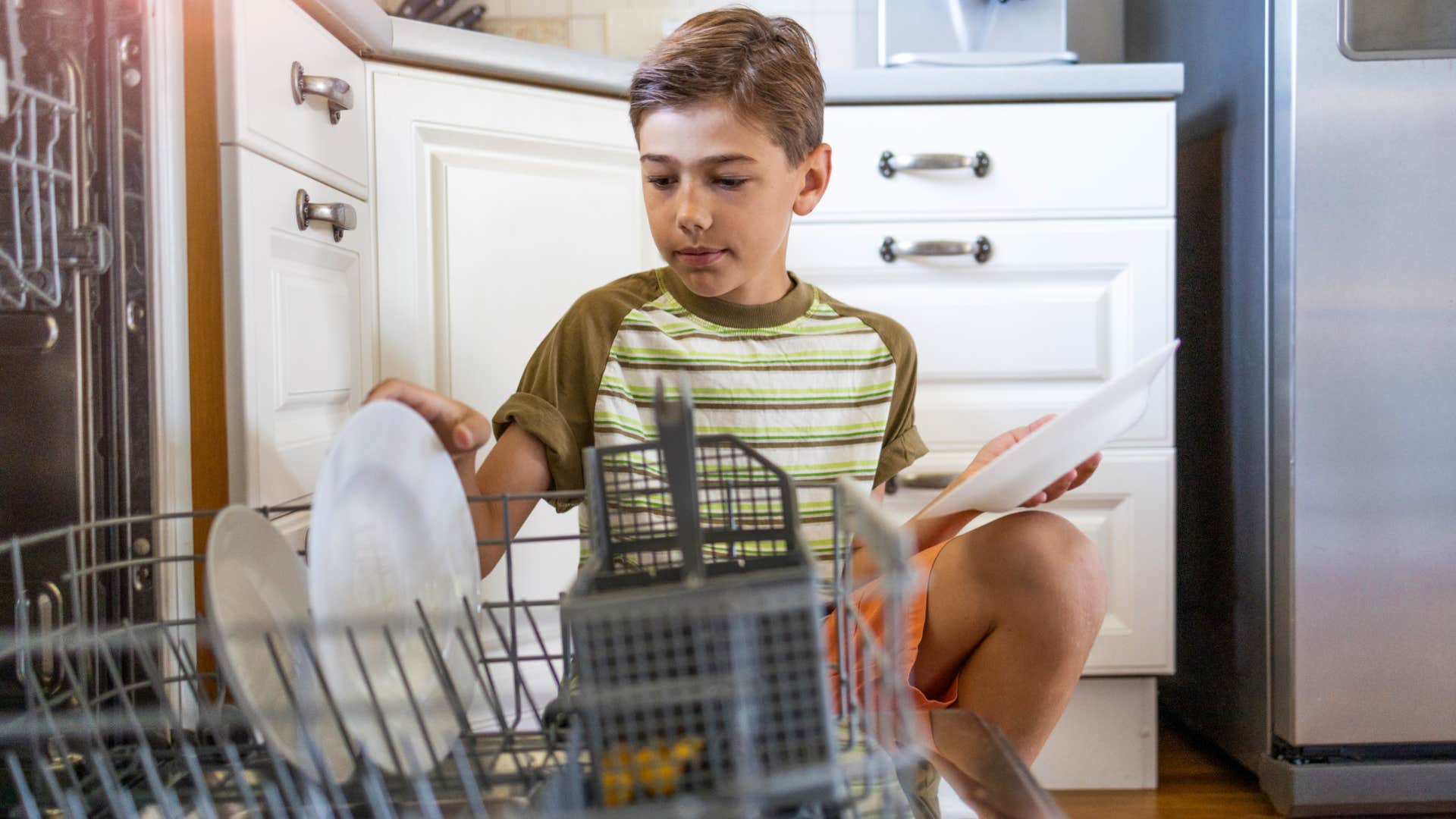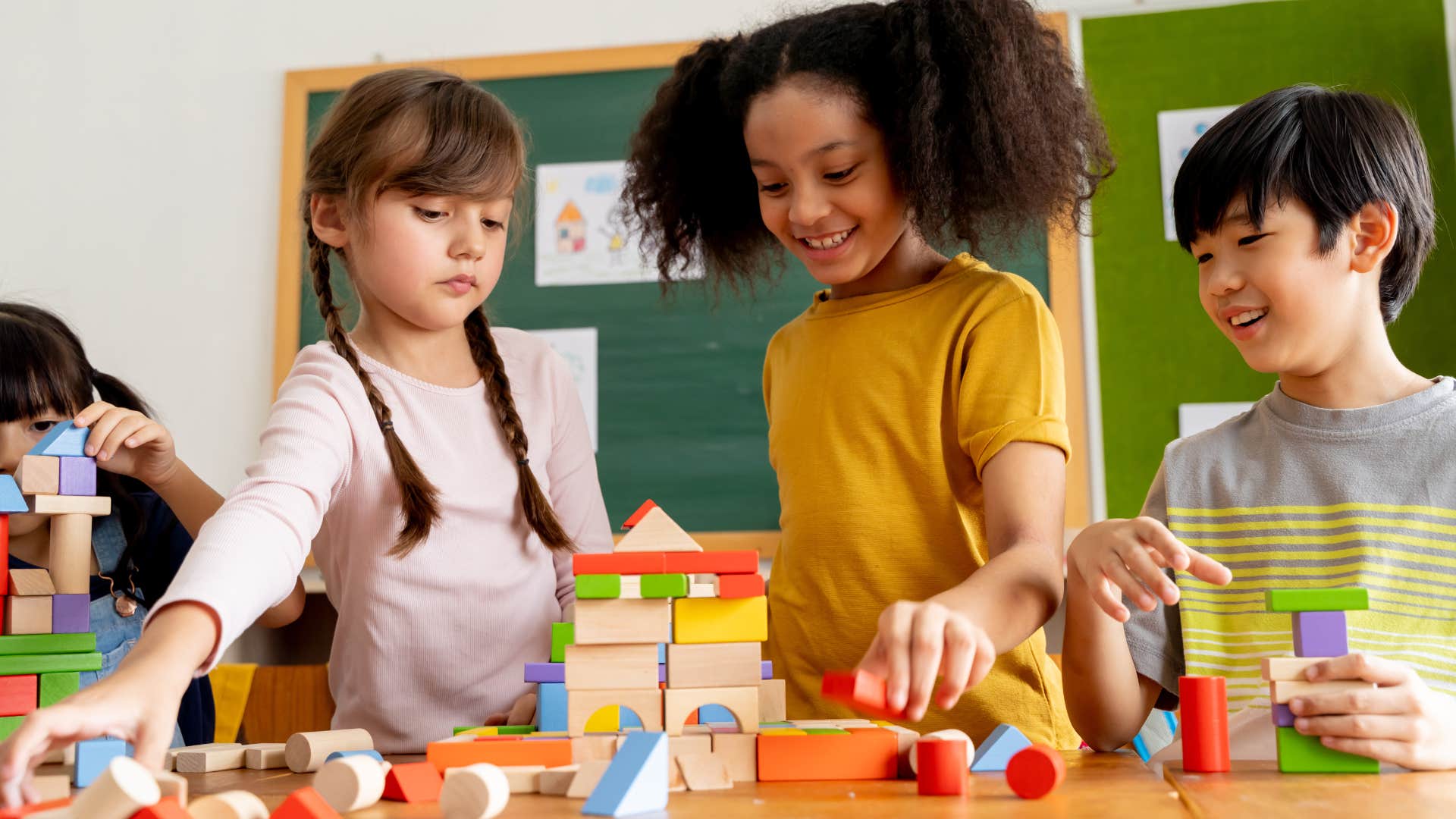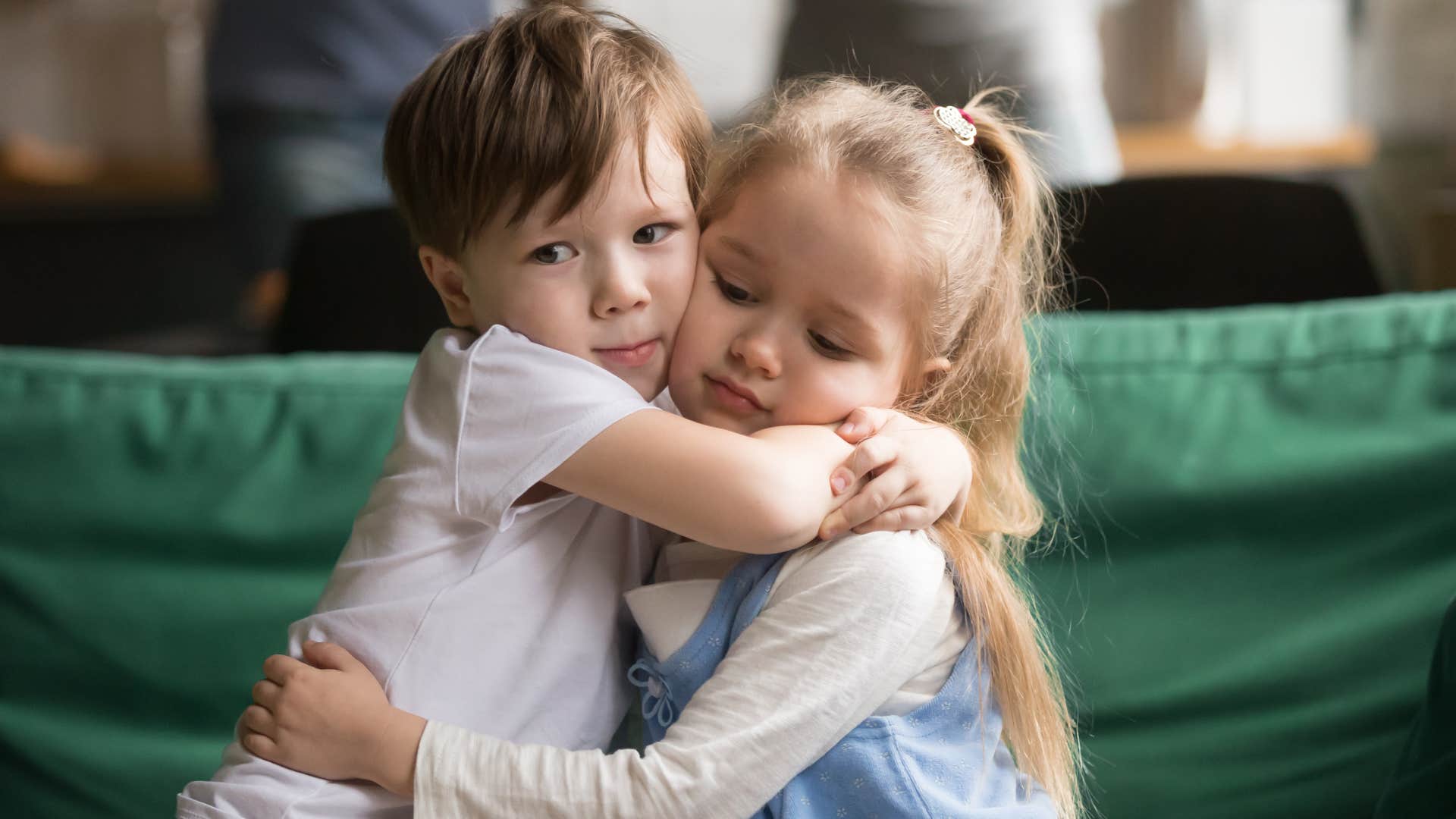The Keys To Success: 10 Lessons The Most Successful Kids Learn From Their Parents
Parents are their child's first and most important teachers.
 StockPhotoDirectors | Shutterstock
StockPhotoDirectors | Shutterstock Every family has their own set of values — those things we believe in most and hold the strongest convictions about. Whatever those values are, we teach them to our children. And whether we realize it or not, the lessons the most successful kids learn from their parents come through in the way we speak, the stories we tell, and the way we treat others.
No matter what lessons we deliberately intend to teach, our children learn exactly what it is we value as they watch our attitudes, reactions, and interactions. This means it's vitally important that parents give conscious thought to understanding their own set of values. To do so, you must first determine what those cherished values are, and then develop a plan to pass them on.
Here are 10 lessons the most successful kids learn from their parents
1. Having a strong work ethic
 PeopleImages | Shutterstock
PeopleImages | Shutterstock
There's a great deal of discussion these days regarding the work ethic of younger generations, as there has been such a discussion about each generation in the last several decades. Some families have a history of workaholics whose children feel abandoned, while others believe drive and ambition are crucial.
According to psychoanalyst Laurie Hollman, "Kids who succeed learn a work ethic as they grow up. We all want our kids to share in household chores, make their beds, carry their plates to the sink, pick up towels off the floor, and have organized backpacks. It gives us fewer tasks, but more importantly, we are teaching the value of shared collaborative work."
2. Protecting and caring for each other
 PeopleImages | Shutterstock
PeopleImages | Shutterstock
Perhaps one of the more essential lessons the most successful kids learn from their parents is basic empathy. Not only is family incredibly important, but so are the relationships and bonds kids form as they grow up.
Think about how you want your child to see their family. Do you want to pass on the value that we do our best to protect and take care of other family members? Do you feel that family is created through more than genetics?
3. Respecting each other and all human beings
 FamVeld | Shutterstock
FamVeld | Shutterstock
There's high value in respecting the rights and needs of every single person we come into contact with. Showing someone respect means you appreciate that person and encourage them to be themselves. But there are other benefits as well.
"One of the main reasons why respect is important is because it teaches empathy to children. Empathy is a learned behavior, and a big part of having empathy is having an inherent respect for everyone. So, teaching respect significantly impacts a child's capacity for empathy," experts from Brightwheel explained.
They further added that learning to be respectful helps kids communicate, understand social cues, express themselves, and promotes positive learning environments.
4. Honesty
 PeopleImages | Shutterstock
PeopleImages | Shutterstock
When parents have a strong perspective regarding lying and truth-telling that they want their children to embrace, they're setting them up for success. Parents should teach their children that telling the truth is the most important thing to do at all times and in all situations.
"Kids watch and model adult behavior. A study from the University of California, San Diego found that elementary schoolchildren who heard a lie from an adult about the presence of candy in another room were more likely to lie to cover up their misbehavior. If we want our children to be honest, we need to be good examples of honesty," experts from PBS Kids for Parents pointed out.
5. Responsibility
 pikselstock | Shutterstock
pikselstock | Shutterstock
Responsibility is another of the lessons the most successful kids learn from their parents. Why? Because it teaches kids confidence and resilience. And it's all about finding the right balance, as too much responsibility can be overwhelming and too little can stunt growth.
Developmental neuropsychologist Dr. Sam Goldstein revealed, "Responsibility can be transformative when it is in step with a child's maturity. This process helps build resilience, self-belief, and a stronger sense of identity. It teaches problem-solving, patience, and how to cope when things don't go as planned. But the wrong amount, either far too much or almost none, can cause harm... Hold them back from any real responsibility, and they may reach adulthood without the skills to make decisions or manage setbacks."
6. Tradition
 Yuganov Konstantin | Shutterstock
Yuganov Konstantin | Shutterstock
Some families have traditions that have been a mainstay for generations. These may be part of a cultural heritage, a religious practice, or a preference for certain holidays. The traditions you believe have added meaning to your life are important to share with your children.
According to parenting researcher Dr. Justin Coulson, children who grow up in homes with family traditions "tend to live happier lives, [are] fueled by a sense of belonging, higher self-esteem, a stronger identity, and better mental health overall."
7. Generosity
 Twinsterphoto | Shutterstock
Twinsterphoto | Shutterstock
Whether it's helping strangers, a peer at school, or a family member, generosity is one of the lessons the most successful kids learn from their parents. Because, believe it or not, though some may consider generosity old-fashioned, it's essential now more than ever.
This is a quality that requires hands-on learning. As early childhood education expert Abby Alexander said, "Children learn best by observing the adults around them. Demonstrate acts of kindness, whether it's volunteering, donating items, or helping a neighbor. Talk to children about why you engage in these activities, emphasizing the joy you feel when giving to and supporting others."
8. Intellectual curiosity
 AstroStar | Shutterstock
AstroStar | Shutterstock
There is much to learn in life, and the most productive, well-adjusted people never stop learning. Helping your children develop their natural curiosity about the world and people around them will serve them well throughout life.
There are numerous benefits to teaching kids to be curious about things, including developing social skills, having a positive outlook, and, of course, predicting greater success down the road.
9. Forgiveness
 fizkes | Shutterstock
fizkes | Shutterstock
We are all hurt, misled, and even betrayed by others from time to time throughout our lives. It's important to teach children the art of forgiveness, as well as how to protect themselves, set boundaries, and recognize signs of harm from people who habitually inflict pain on and take advantage of others.
When faced with uncomfortable emotions like these, teaching children to empower themselves is essential. These sometimes overlooked life skills create opportunities for personal growth.
10. Effective communication
 Ground Picture | Shutterstock
Ground Picture | Shutterstock
Learning to communicate effectively is a skill that pays great dividends throughout life. Without this skill, we have difficulty standing up for ourselves and making our needs known, which can lead to unnecessary hurt, disappointment, and resentment in our personal and professional relationships.
Developing the ability to communicate effectively builds confidence, opens doors, enhances problem-solving, and increases success in life.
Drs. Debbie and David McFadden are relationship and life coaches with master's degrees in education and social work. David specializes in family counseling and therapy.

